
A brain implant can render speech almost instantaneously
Brain-computer interface (BCI) devices have recently succeeded in turning brain activity directly into text or even speech. Until now, these systems had long delays, imposed a limited vocabulary and were unable to reproduce the nuances of spoken language, such as intonation. Now, researchers at the University of California, Davis, have built a neural prosthesis that translates brain signals into sounds - phonemes and words - almost instantaneously. It is perhaps the first real step towards a "digital vocal tract".
In turn, Francis R. Willett and his team at Stanford University have achieved a translation of thoughts into text with an error rate of about 25%.
Google's carbon emissions rise again amid AI development
Google's 2025 sustainability report shows that the company's "ambition-based emissions" rose 11% last year to 11.5 million metric tons of carbon dioxide - a 51% increase from 2019. Among the causes cited by Google are factors "outside of its direct control", such as the rapid evolution of AI, which complicates estimates of future energy consumption and emissions levels.
These increases take Google further away from its goal of halving emissions by 2030 compared to 2019. Note that "ambition-based emissions" do not include pollution generated by parts of the supply chain that are considered "peripheral" to Alphabet's core business. They include purchased goods and services and mainstream programs.
Windows ditches famous Blue Screen of Death after 40 years
Microsoft has announced that in Windows 11, the famous "Blue Screen of Death" will become the "Black Screen of Death". The new screen ditches the blue color, sad face, and QR code, and is replaced with a simplified black screen.
While the design resembles the screen that appears during Windows updates, the new BSOD will display the shutdown code and the problematic driver. This will eliminate the need for IT administrators to extract crash dump files and analyze them manually to identify the source of problems.
OpenAI adjusts salaries after Meta attracts more researchers
After Meta was able to hire several top researchers from OpenAI, Mark Chen - chief research officer - told colleagues that the management team was not sitting on its hands. "I feel a visceral feeling like someone broke into our house and stole something," he wrote in an internal message.
To counter the situation, he and CEO Sam Altman spoke directly with employees who received offers and began "recalibrating compensation packages," looking for more creative ways to reward valuable talent.
iPhone 17 Pro could have the Apple logo moved back
According to leaker Majin Buu, Apple is considering moving the logo on the back of the iPhone again. It was last repositioned with the iPhone 11 launch, and has been centered ever since. Now, six years later, the logo could be moved again.
Majin Buu has a mixed reputation, but has previously provided accurate information, such as the "Desert Titanium" name for the new iPhone 16 Pro color.
Mobile video editor YouTube is coming to iOS
Almost two years after launching exclusively on Android, Google is bringing the YouTube Create app to iOS. According to TechCrunch, Google is hiring engineers in Bengaluru, India, to develop the iOS version.
The Android version was launched in the US and 7 other countries in September 2023 and has been rolled out to 13 other countries by February 2024.
Denmark wants to legally protect citizens' faces and voices against deepfakes
The Danish government is preparing a legislative change that would include a person's facial features, voice and body within the scope of copyright. The aim is to combat deepfake.
Denmark's Ministry of Culture is finalizing the proposal, which already enjoys broad political support. Although the official draft has not yet been tabled, it would give citizens legal control over how their image and voice are used.
Facebook wants access to your photos for AI suggestions, even unposted ones
Facebook is asking users for permission to access photos on their phone to automatically generate AI suggestions for editing - even for photos that haven't yet been posted.
The suggestion pops up when you create a new story (Story), and the app prompts you to turn on "cloud processing" to get creative ideas.
Meta is negotiating the acquisition of a voice cloning startup
Meta is in talks to buy Play AI, a startup specializing in voice cloning. According to Bloomberg, Meta wants to acquire both the technology and part of the company's team.
Play AI allows anyone to create artificial voices for AI scenarios, such as customer support. The startup has raised $23.5 million, backed by investors including 500 Global, Kindred Ventures and Race Capital.
AI could damage reputation of Kobo, an open alternative to Kindle
Kobo, the Rakuten-owned company, is known as a more author-friendly alternative to Kindle. But a recent change to the Kobo Writing Life publishing platform has writers worried. Last month, Kobo updated the terms of service, allowing the inclusion of AI features. The new terms took effect June 28, but authors don't yet know exactly how it will affect their work.
For those who don't work with traditional publishers, Kobo and Kindle Direct Publishing offer an affordable way to sell their books. If authors can provide the manuscript, the necessary data and are willing to do the marketing, they have all the resources to publish their work independently.
Google has quietly introduced precise Bluetooth tracking on the Pixel Watch 3
With the Wear OS 5.1 update in March, Google added a new feature called Channel Sounding to the Pixel Watch 3. This can improve the localization of other devices using existing Bluetooth hardware. But according to Android Authority, the feature is not yet live, as it requires multiple compatible devices to fully work.
Bluetooth Special Interest Group (SIG) unveiled version 6.0 of its protocol in September 2024, and one of the most exciting new features isn't related to wireless headsets, but to precise localization.
Google relaunches "Ask Photos" with faster answers
After a temporary hiatus, Google is once again expanding its AI-powered "Ask Photos" feature and giving it a speed boost. The feature enables intelligent search in Google Photos using Gemini AI models.
A Google Photos team member recently admitted that the feature was "not up to par" in terms of speed, quality and experience. In a blog post, Google announces that it has listened to feedback and now results for simple searches (e.g. "beach" or "dogs") appear immediately, while Gemini continues searches for more complex queries in the background.
HDMI 2.2 will enable 16K video at 60Hz
HDMI Forum has released the HDMI 2.2 spec, following its announcement at CES 2025. The new Ultra96 HDMI cables will have a bandwidth of up to 96Gbps and could be available later this year.
By comparison, HDMI 2.1 supported 48Gbps, with resolutions up to 10K and 120Hz for 4K. HDMI 2.2 will allow 4K at 480Hz, 8K at 240Hz, 10K at 120Hz and even 16K at 60Hz. It will also support uncompressed 10-bit and 12-bit color video formats at 8K 60Hz or 4K 240Hz.
Gemini is set to replace Google Assistant on Android
Google will start rolling out an update on July 7 that allows Gemini to control apps and features on your phone, such as calls, messages or WhatsApp, regardless of whether Gemini Apps activity is enabled or not.
If this setting is disabled, Gemini conversations are not used to enhance Google products. Until now, disabling it prevented Gemini from setting alarms, calling contacts or playing music. This will be removed.
iPhone users with Google Fi will receive voicemails directly in the Phone app
Google is changing the way iPhone users access voicemails through Fi. Instead of a dedicated tab in the Google Fi app, voicemails will be available directly in the Phone app on iOS.
The change began July 2 and will be complete soon. Additionally, starting in August, Google will completely remove the voicemail section from the Fi app for iOS. If you have voicemails you want to keep, you'll need to download them through Google Takeout by August 13. After that date, they will no longer be available.
Barbie gets an AI upgrade: Mattel partners with OpenAI
On June 12, Mattel announced a partnership with OpenAI that will integrate conversational artificial intelligence into toys like Barbie and Hot Wheels. The goal is to create toys that don't just entertain, but interact and adapt to a child's behavior.
In Mattel's labs, designers are already using AI to create dozens of concepts in record time and test prototypes in digital environments. Imagine a Barbie that remembers a favorite bedtime story or a Hot Wheels track that offers personalized challenges based on a child's play style.
Writers call on publishers to curb industry use of AI
Famous authors such as Lauren Groff, Lev Grossman, R.F. Kuang and Dennis Lehane have signed an open letter calling on publishers to limit the use of AI. They call for clear commitments, such as continuing to hire real narrators for audiobooks.
The letter denounces the unauthorized use of authors' work to train AI models."Our work has been stolen. Instead of getting a share of the profits, others are gaining from our unpaid labor."
Google launches Doppl, an AI app that shows you how your clothes fit
Google has launched the experimental Doppl app in the US on iOS and Android, which lets you "try on" clothes using AI. Just upload a full-body photo and the app generates an image of you wearing the clothes.
You can use images from social networks, online stores or your phone gallery. Doppl can turn the image into a short, AI-generated video clip to show you how the clothes move on you.
OpenAI uses Google's AI chips to power its products
According to a source cited by Reuters, OpenAI has started renting AI chips from Google to run ChatGPT and other products. OpenAI is one of the biggest buyers of Nvidia GPUs, which are used both for training AI models and for "inference" - the application of knowledge to new situations.
Gartner: Over 40% of autonomous AI projects will be abandoned by 2027
A Gartner report warns that more than 40% of agentic (autonomous) AI projects will be abandoned by 2027, due to high costs and uncertain business value.
Big companies such as Salesforce and Oracle are investing heavily in such systems that perform tasks without human intervention. But many vendors are practicing "agent washing" - rebranding ordinary products (e.g. chatbots) as "autonomous agents" with no real capabilities. Gartner estimates that only 130 out of thousands of such vendors truly offer agent technology.
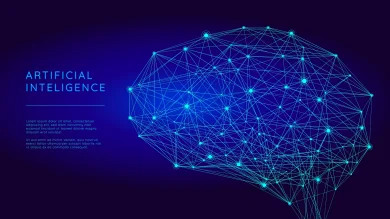
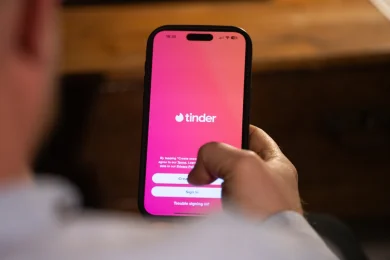

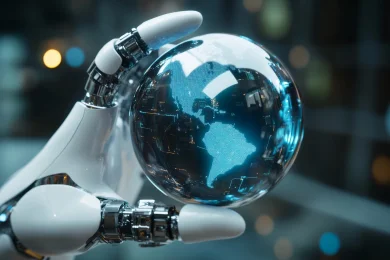
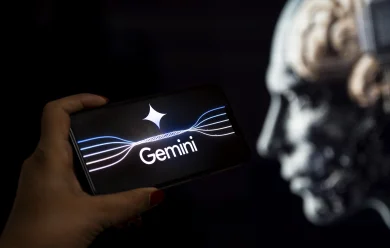
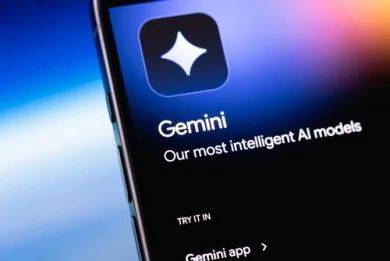
.webp)









